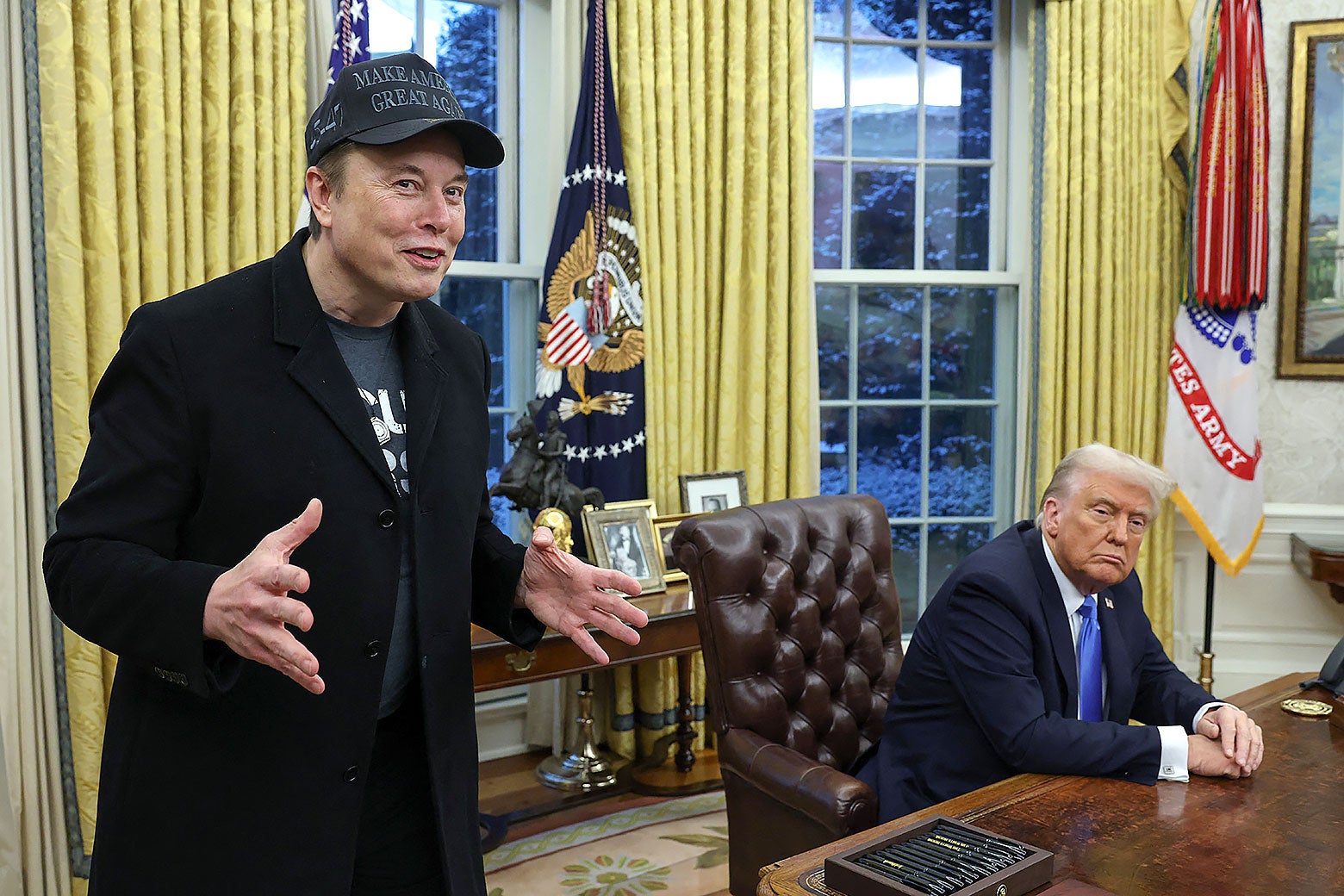In the past week or so, the courts have begun to try to set some boundaries on the Musk–Miller–Trump administration’s early blitz of recklessness.
. . .
This judicial review provides at least a small reprieve, hope that some of the administration’s most destructive impulses will be stopped. Or at least pared back. But even with the courts stepping up, and even with the reality of the administration’s ineptitude sinking in, this early Musk–Miller–Trump blitz remains very—maybe irreparably—damaging. Of course, there are a lot of moles to whack: the U.S. Agency for International Development and the Consumer Financial Protection Bureau are being dismantled at an alarming rate, and the court system is not known for being nimble. The administration is betting, perhaps rightly, that at least some of its thoughtless, lawless efforts will slip through the cracks.
But even if the courts caught them all—and even if every court facing each lawless escapade said, “Nope, that’s not a thing”—still the entire process would be doing serious damage to our institutions. Think of it as someone spoofing your identity and going on a shopping spree with your credit cards. Even if the goon gets caught, you still have to go store by store to argue that the fraudulent purchase wasn’t legitimate and hope the debt is forgiven. And all the while, perhaps long after all the debts are dealt with, the torrent of uncertainty kills your credit score.



Deliberately sabotaging your job as a government worker (assuming you’re not working in a military industrial complex or enforcement job) plays directly into the right’s framing of government as inefficient. It’s important that public-facing positions be competent to foster public trust; after all, those positions are what conservatives dismantle first as pretext to abolish an agency. After public discontent sets in through first-hand experience dealing with understaffing, those public services become ripe for privatization.